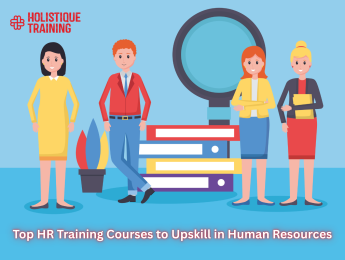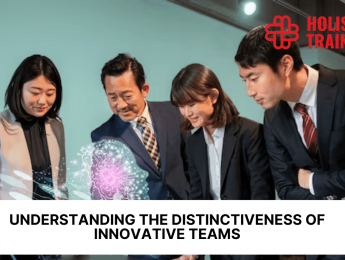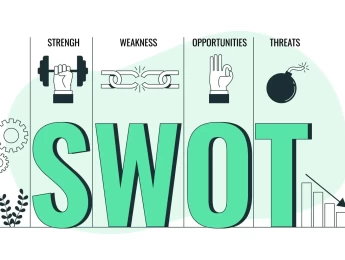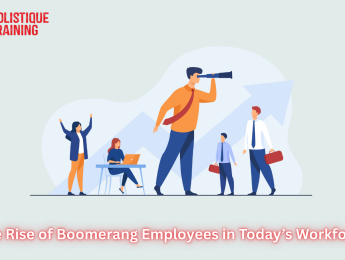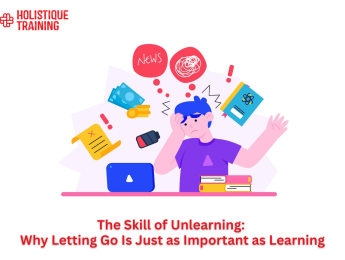- Table of Contents
- Introduction
- HR Fundamentals and Legal Compliance
- What Makes an HR Training Course Effective?
- 1. Up-to-Date Content
- 2. Expert-Led Instruction
- 3. Practical Application
- 4. Recognised Accreditation
- 4. Top Human Resources Training Courses Every HR Professional Should Consider
- 1. The Manager’s Toolkit: A Practical Guide to Managing People at Work – University of London (via Coursera)
- 2. SHRM Essentials of Human Resources – Society for Human Resource Management (SHRM)
- 3. CIPD Level 5 Associate Diploma in People Management – Chartered Institute of Personnel and Development (CIPD)
- 4. Strategic Human Resources Leadership – Harvard Division of Continuing Education
- 5. People Analytics: Transforming HR Strategy with Data Science – Cambridge Judge Business School
- 6. Recruiting, Hiring, and Onboarding Employees – University of Minnesota (via Coursera)
- 7. Human Resources Lifecycle Training: Mastering the Employee Journey – Holistique Training
- 8. Corporate Reputation Management – Holistique Training
- Learning & Development (L&D) Strategy
- HR Tools and Digital Technologies
- Strategic HR Leadership
- Conclusion
Introduction
In a time marked by rapid technological advances, evolving employee expectations, and increasingly diverse workplaces, professional training has become an essential cornerstone for human resources professionals. The traditional image of HR as an administrative support function is outdated. Today’s HR practitioners are expected to act as strategic partners, talent architects, data analysts, and culture builders. Meeting these expectations requires continuous learning and skills development.
Training allows HR professionals to navigate complex challenges such as hybrid work environments, mental health awareness, diversity and inclusion policies, and the implementation of digital HR systems. It also ensures that HR teams remain compliant with evolving legal requirements and labour laws, which differ significantly across industries and jurisdictions.
Moreover, as organisations compete to attract and retain top talent, HR plays a critical role in designing employee-centric strategies that are agile, personalised, and sustainable. Without training, HR departments risk becoming disconnected from the strategic direction of the business.
In this article, we will discuss the key areas in which HR professionals should consider training, the criteria that make such training effective, and a curated list of world-class courses to help HR teams thrive in the modern workplace.
HR Fundamentals and Legal Compliance
Understanding employment law and compliance is foundational for any HR professional. These laws protect both employees and employers and ensure that workplace policies and practices are fair, transparent, and legally sound. Effective training in this area covers topics such as anti-discrimination regulations, contract law, workplace safety, working time regulations, and employee rights under national and international legislation.
In addition to legal knowledge, HR professionals must be familiar with internal policy-making. This includes designing employee handbooks, creating grievance procedures, and establishing fair disciplinary protocols. Internal compliance also involves ensuring alignment with codes of conduct, ethical standards, and corporate values.
Many professional bodies, such as CIPD in the UK and SHRM globally, offer compliance-focused modules as part of broader HR certifications. These modules are often updated annually to reflect legislative changes. Continuous legal training helps organisations avoid costly litigation and fosters a culture of accountability.
Investing in legal and compliance training is not just about avoiding risk—it’s about building trust and transparency across the organisation. Well-trained HR professionals serve as the bridge between legal frameworks and human experiences at work.
What Makes an HR Training Course Effective?
1. Up-to-Date Content
The world of work is evolving fast, and HR professionals need training that reflects the most recent developments. Courses that are regularly updated to include new legal precedents, emerging HR technologies, and evolving employee trends are far more valuable than static, outdated materials.
2. Expert-Led Instruction
An effective HR course should be delivered by instructors with real-world experience in the field. This includes HR managers, employment lawyers, L&D strategists, and business leaders. Practical insights and case studies add immense value and provide learners with applicable tools they can use immediately.
3. Practical Application
Theoretical knowledge is important, but the best HR courses incorporate real-world scenarios, role-playing, interactive case studies, and simulations. These techniques reinforce learning and help participants understand how to handle situations such as difficult conversations, crisis response, or policy design.
4. Recognised Accreditation
Enrolling in a course from a recognised institution (such as CIPD, SHRM, HRCI, or a major university) enhances credibility and can improve career prospects. Certifications also signal to employers that a professional has achieved a standard of excellence in a specific HR area.
4. Top Human Resources Training Courses Every HR Professional Should Consider
In the ever-evolving landscape of human resources, staying updated with the latest trends, tools, and strategies is no longer optional—it's essential. Whether you're just beginning your HR career or you're a seasoned practitioner looking to expand your strategic influence, investing in the right training programs can dramatically elevate your effectiveness and credibility. With the global workforce becoming more dynamic, diverse, and digitally driven, HR professionals must be equipped with multifaceted skills ranging from people analytics and legal compliance to employee engagement and strategic leadership.
The following curated list comprises eight of the most reputable, in-demand, and transformative HR courses available today. These programs are provided by globally respected institutions and are designed to cater to a variety of HR development needs, from foundational knowledge to advanced strategic competencies.
1. The Manager’s Toolkit: A Practical Guide to Managing People at Work – University of London (via Coursera)
Offered by the University of London through Coursera, this course—officially titled The Manager’s Toolkit—is widely recognised as a practical and accessible introduction to people management. It is tailored for aspiring or early-career managers seeking to build essential leadership skills grounded in real workplace scenarios.
The course addresses a broad range of core management functions: how to assess performance, make effective hiring decisions, structure reward systems, and handle common interpersonal challenges such as conflict and communication breakdowns. Unlike theoretical management courses, this programme focuses on everyday decisions managers face and provides actionable strategies to handle them with confidence.
Learners also explore important behavioural competencies such as emotional intelligence, influencing others, and motivating teams—skills that are now considered fundamental to leadership success in modern, diverse organisations. One of the course’s distinguishing strengths lies in its practical, down-to-earth approach, drawing on real case examples and easy-to-follow frameworks rather than abstract models.
Its self-paced format makes it particularly suitable for working professionals looking to apply new insights directly to their roles. With over 190,000 learners enrolled and a 4.7-star average rating, it remains one of the most respected entry-level management courses available online.
2. SHRM Essentials of Human Resources – Society for Human Resource Management (SHRM)
Developed by the globally renowned Society for Human Resource Management (SHRM), this course delivers a comprehensive and practical introduction to the key components of the HR profession. It’s particularly useful for individuals new to HR or professionals who handle HR responsibilities as part of their broader role.
The programme covers foundational topics including employment law, recruitment and selection, compensation and benefits, performance management, and employee relations. The content is structured to help participants develop a strong working knowledge of HR operations in alignment with legal compliance and ethical practice.
One of the core strengths of this course is its emphasis on real-world application. Participants gain tools and templates they can implement in their workplace immediately—making it especially valuable for small business managers, office administrators, and those transitioning into an HR career. Delivered in flexible formats both online and in-person, SHRM’s Essentials course has become a globally trusted pathway to HR proficiency.
3. CIPD Level 5 Associate Diploma in People Management – Chartered Institute of Personnel and Development (CIPD)
This highly regarded qualification from the Chartered Institute of Personnel and Development (CIPD) is designed for HR professionals who are looking to move into more strategic and decision-making roles. Ideal for those with some HR experience, the Level 5 diploma bridges the gap between operational HR tasks and strategic workforce planning.
The course includes modules in people management, organisational performance, evidence-based practice, employment law, employee engagement, and change management. With a strong emphasis on ethics, employee wellbeing, and inclusive leadership, it aligns with the UK’s HR regulatory landscape but is also respected internationally.
Learners benefit from structured assignments, access to CIPD resources, and support from experienced tutors. Completing this diploma not only enhances practical knowledge but also contributes towards Chartered Membership status—boosting both credibility and career prospects in the HR field.
4. Strategic Human Resources Leadership – Harvard Division of Continuing Education
Designed for senior HR professionals and C-level leaders, this intensive executive programme by Harvard’s Division of Continuing Education focuses on aligning human capital strategy with business transformation. It’s particularly relevant in organisations undergoing growth, digital transformation, or global expansion.
Participants explore advanced topics such as succession planning, change leadership, culture shaping, and talent analytics. The course uses a highly interactive format that includes case studies, peer learning, and one-on-one feedback. It draws on Harvard’s research in organisational behaviour and leadership development to provide strategic frameworks that are both innovative and actionable.
This programme is best suited to HR directors, senior business partners, and executives who want to sharpen their influence, drive cultural change, and contribute directly to business outcomes through a people-first strategy.
5. People Analytics: Transforming HR Strategy with Data Science – Cambridge Judge Business School
Offered by the University of Cambridge’s Judge Business School, this executive education programme explores how HR professionals can leverage data science to reshape workforce strategies and drive organisational success. It is tailored for mid to senior-level HR leaders who seek to transition from intuition-based decision-making to evidence-led strategy development.
The course covers a wide range of contemporary topics, including the foundations of people analytics, predictive modelling, organisational network analysis, and psychometrics. Participants also learn how to design effective experiments, implement performance metrics, and interpret complex workforce data to make informed talent decisions.
Unlike general HR analytics courses, this programme is deeply rooted in real-world business challenges. It incorporates case studies, peer collaboration, and practical projects that allow learners to apply analytical tools to their own organisational contexts. It also places a strong emphasis on the ethical use of people data and how to avoid cognitive and statistical biases in interpretation.
Delivered over eight weeks in a flexible online format, this course is ideal for HR strategists, data-driven managers, and professionals involved in talent planning, employee engagement, or digital HR transformation. Upon completion, participants receive a digital certificate from Cambridge Judge Business School—one of Europe’s most prestigious business institutions.
6. Recruiting, Hiring, and Onboarding Employees – University of Minnesota (via Coursera)
This course, developed by the University of Minnesota and offered on Coursera, provides practical guidance on managing one of the most crucial aspects of HR: acquiring and integrating talent. It’s especially relevant for HR generalists, talent acquisition specialists, and line managers involved in recruitment.
Learners explore the full hiring cycle—from drafting compelling job descriptions to conducting behavioural interviews and facilitating seamless onboarding. The course also includes insights on employer branding, diversity hiring strategies, and legal compliance during the recruitment process.
Its modular structure makes it easy to follow, while case studies and peer-reviewed assignments help reinforce practical learning. Whether you're scaling a startup or formalising your organisation’s hiring procedures, this course offers essential tools to attract and retain the right talent.
7. Human Resources Lifecycle Training: Mastering the Employee Journey – Holistique Training
This comprehensive course by Holistique Training is designed to equip HR professionals with the tools and frameworks needed to manage every stage of the employee lifecycle—from talent acquisition to offboarding. It offers a holistic perspective on how HR can craft meaningful, engaging, and structured experiences that support both employee growth and organisational success.
The course dives deep into critical stages of the lifecycle: recruitment and onboarding, performance and development, employee engagement, retention strategies, and effective exit processes. Participants learn how to design employee touchpoints that are consistent, values-driven, and aligned with business goals.
Emphasis is placed on understanding the psychological and strategic dimensions of the employee journey. This includes building employer branding, creating feedback-rich cultures, developing internal mobility pathways, and ensuring smooth transitions at the end of employment. The course also explores how to leverage HR technologies and data to optimise the lifecycle experience.
This programme is ideal for HR generalists, talent managers, and business partners who want to drive employee satisfaction, reduce turnover, and enhance overall workforce effectiveness. It offers practical tools and real-world frameworks for mastering the full scope of human resource management in today’s evolving workplace.
8. Corporate Reputation Management – Holistique Training
Though often associated with marketing or communications, reputation management is increasingly a shared responsibility with HR—particularly when it comes to internal culture, leadership ethics, and employer branding. This Holistique Training course dives into the HR side of reputation resilience.
Participants learn how to manage internal communications, handle crises, and promote trust and transparency within the workforce. The course includes frameworks for ethical leadership, stakeholder engagement, and values-driven culture building.
It’s a highly relevant programme for senior HR professionals working in branding-heavy industries or those involved in strategic transformation projects where public and employee perception are critical.
Course Title | Provider | Key Focus Area(s) |
The Manager’s Toolkit: A Practical Guide to Managing People at Work | University of London (Coursera) | People management fundamentals, emotional intelligence |
SHRM Essentials of Human Resources | SHRM | Employment law, HR operations, practical HR tools |
CIPD Level 5 Associate Diploma in People Management | CIPD | Strategic HR, ethics, employee engagement |
Strategic Human Resources Leadership | Harvard Division of Continuing Education | Succession planning, talent strategy, culture change |
People Analytics: Transforming HR Strategy with Data Science | Cambridge Judge Business School | People analytics, data science, psychometrics |
Recruiting, Hiring, and Onboarding Employees | University of Minnesota (Coursera) | Hiring process, employer branding, onboarding |
Human Resources Lifecycle Training: Mastering the Employee Journey | Holistique Training | Full employee journey, retention, internal mobility |
Corporate Reputation Management | Holistique Training | Ethics, internal culture, employer branding |
These courses provide a diverse and comprehensive foundation for HR professionals who aim to stay ahead in their field. Choosing the right course depends on your current role, career goals, and the strategic needs of your organization. Whether you’re investing in legal expertise, data analytics, or leadership training, each course above offers concrete, actionable knowledge to advance your HR journey.
Learning & Development (L&D) Strategy
Investing in Learning and Development (L&D) not only nurtures employee skills but also drives engagement and organisational performance. Effective L&D programs are aligned with company goals and based on evidence-backed learning principles. They should include a blend of formal training, on-the-job learning, coaching, and digital learning platforms.
A 2023 report by the CIPD highlighted that companies with mature L&D strategies were 27% more likely to report increased employee productivity and retention. Moreover, a LinkedIn Learning study showed that 94% of employees would stay longer at a company that invests in their development.
Designing a strong L&D programme requires:
- Conducting a skills gap analysis
- Defining learning outcomes clearly
- Selecting diverse formats (e.g., e-learning, workshops, mentorship)
- Measuring ROI of learning interventions
HR professionals responsible for training should also be familiar with digital tools like LMS (Learning Management Systems), microlearning apps, and performance support tools.
L&D is not a one-size-fits-all approach. It should be flexible, inclusive, and personalised to meet employee needs and adapt to business priorities. A strategic focus on L&D helps transform HR from a cost centre into a value-generating partner.
HR Tools and Digital Technologies
Digital transformation has revolutionised how HR functions operate. Today, a modern HR department relies on a suite of digital tools that streamline tasks, provide insights, and enhance the employee experience.
Here are some of the key HR technologies:
Tool Type | Example Platforms | Function |
HRIS (Human Resource Information System) | Workday, BambooHR, SAP SuccessFactors | Centralises employee data, automates HR workflows |
ATS (Applicant Tracking System) | Greenhouse, Lever, Recruitee | Manages the recruitment process end-to-end |
LMS (Learning Management System) | Moodle, TalentLMS, Docebo | Delivers and tracks employee training |
Performance Management Tools | Lattice, 15Five, Betterworks | Tracks goals, feedback, and performance reviews |
People Analytics Platforms | Visier, ChartHop, Culture Amp | Provides data-driven insights for decision-making |
Using these tools requires HR professionals to develop digital fluency, including data interpretation, software integration, and user experience design. Regular training in HR tech ensures teams can maximise efficiency, reduce administrative burdens, and make strategic decisions informed by real-time data.
Moreover, the rise of AI and automation means HR must now consider ethical use of algorithms in hiring, employee monitoring, and engagement analysis. Continuous learning in this area ensures responsible and inclusive practices.
Strategic HR Leadership
The transition from tactical HR to strategic HR leadership requires a shift in mindset and capabilities. Strategic HR leaders are proactive, data-informed, and deeply aligned with organisational goals. They play a critical role in shaping workforce strategy, succession planning, and business transformation.
Key areas of strategic leadership in HR include:
- Aligning HR strategy with overall business objectives
- Using workforce analytics for long-term planning
- Leading organisational change and cultural transformation
- Advising senior leadership on talent risks and opportunities
To develop these competencies, HR professionals can enrol in leadership-focused training programmes such as Harvard’s Strategic Human Resources Leadership course or CIPD’s Level 7 Advanced Diploma in Strategic People Management. These courses cultivate systems thinking, stakeholder influence, and ethical decision-making.
Strategic HR leaders are no longer support players—they are integral to the executive team and directly influence innovation, growth, and resilience.
Conclusion
The HR function is at the heart of organisational success, and its impact grows stronger when practitioners commit to continuous learning. Whether it’s mastering legal compliance, leveraging analytics, or driving strategic initiatives, the right training empowers HR professionals to deliver greater value.
Investing in your professional development is not only a personal advantage—it sends a powerful signal to your organisation that HR is a strategic partner, not just a support function.
At Holistique Training, we offer specialised HR courses designed to meet the evolving demands of modern workplaces. From learning and development strategy to reputation management and strategic HR leadership, our programmes are tailored to help you lead with confidence and credibility.
Explore our full catalogue of HR training courses and take the next step in your professional growth today: Holistique HR Courses.


